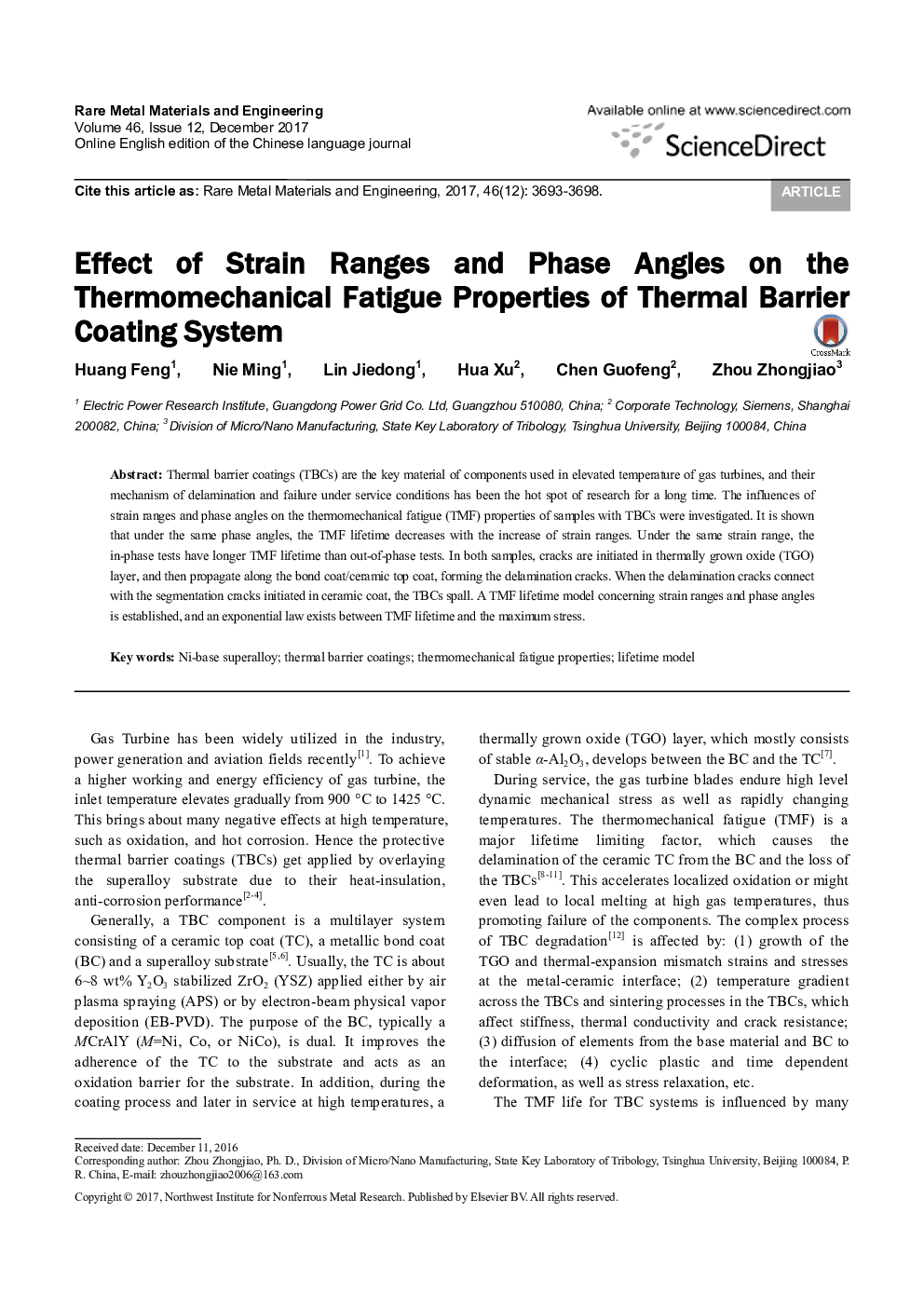| Article ID | Journal | Published Year | Pages | File Type |
|---|---|---|---|---|
| 7210186 | Rare Metal Materials and Engineering | 2017 | 6 Pages |
Abstract
Thermal barrier coatings (TBCs) are the key material of components used in elevated temperature of gas turbines, and their mechanism of delamination and failure under service conditions has been the hot spot of research for a long time. The influences of strain ranges and phase angles on the thermomechanical fatigue (TMF) properties of samples with TBCs were investigated. It is shown that under the same phase angles, the TMF lifetime decreases with the increase of strain ranges. Under the same strain range, the in-phase tests have longer TMF lifetime than out-of-phase tests. In both samples, cracks are initiated in thermally grown oxide (TGO) layer, and then propagate along the bond coat/ceramic top coat, forming the delamination cracks. When the delamination cracks connect with the segmentation cracks initiated in ceramic coat, the TBCs spall. A TMF lifetime model concerning strain ranges and phase angles is established, and an exponential law exists between TMF lifetime and the maximum stress.
Related Topics
Physical Sciences and Engineering
Engineering
Mechanics of Materials
Authors
Huang Feng, Nie Ming, Lin Jiedong, Hua Xu, Chen Guofeng, Zhou Zhongjiao,
